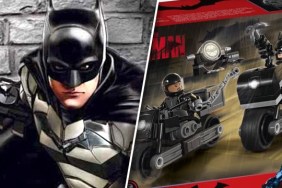When choosing between demanding manual labor and Valhalla Knights: Eldar Saga, choose the labor.
What does Valhalla Knights: Eldar Saga have in common with a bag of pre-mix cement? Unfortunately, just about everything; but most noticeably, the color scheme and lack of playability. A cheap imitation of the Monster Hunter series, and with influences from a number of other games including the Elder Scrolls series and MMORPGs in general, almost everything in this game comes up short. Parts are overly simplistic while other aspects are entirely too complicated, and every bit of it seems mired in painful repetition, inadequate systems, and a joyless environment. Pile all this on top of a mud-pit-themed color scheme, and it becomes almost unbearable.
[image1]Generally, the point of a platform RPG is to tell a story, and the one in Eldar Saga is barely present and makes little sense. Something about star fragments and uniting different races to face some hinted-at evil. The plot hardly ever develops, and the dialogue is so forced, it hurts.
Some stories don’t need much plot as long as it has vibrant characters, but Eldar Saga doesn’t have that either. The main character is essentially a mute whose comprehensive list of emotes includes shrugging and grunting. And while the Chrono series made the whole "silent protagonist" thing work by creating context and engaging dialogue, Eldar Saga‘s deficient translation and stiff, redundant, and hard-to-follow writing is not only confusing, but also makes sure you don’t care about the people and places you visit in the slightest.
Worse, the world of Eldar Saga makes this game a waste of time. The point is to save the world, right? Well, you are left asking "why bother"? The very gray setting and landscapes make you consider handing it over to the baddies before you even get started – I mean, who would want to save that? The day-to-night time lapse goes by way too fast and sometimes doesn’t seem to make sense; it is always overcast, rainy, or foggy, and even at its brightest, gloomy is the best way to describe the towns, battlefields, and dungeons. It is reminiscent of the more morose parts of Morrowind (and Oblivion), but less detailed and with much less variety. The world is simply a bummer.
The game flow and controls are better, but not by a ton. While the battle system has potential thanks to its general simplicity and seamless integration with the gameplay, it stumbles due to the inability to cancel commands and the general chaos that ensues when more than one enemy is encountered at a time. For example, say you kill a weaker enemy in one hit but have tapped the controls to attack multiple times – even with the monster dead on the ground, your guy will keep swinging away until he’s gone through all the strokes. And when using a heavy, two-handed sword like I was, this can really slow you down. Let that happen when you are surrounded by more than one monster and it really becomes a pain. And little kinks like that are all over the place.
[image2]One really inconvenient system is the equipment set-up. While the variety of equipment is awesome, there is no in-game comparison system. So when you have to re-equip or buy new gear, you either have to memorize all of the four pages of stats on a given piece of equipment or write it all down on paper. Along with the complicated stats and high price of new equipment, going shopping can be more daunting than fighting bosses.
Another brutally inadequate feature are the in-game maps. The world map is barely legible and exists just to be looked at more than anything else. The field map in the upper-right corner is also hard to read and has extremely limited visibility – so much so as to make it almost useless.
On the upside, the job system is kind of cool, especially the variety of skills and the ability to combine different skills from different jobs as you master them. But the game seems to reward a single job path by making it expensive to switch between jobs and cumbersome to learn new abilities.
Another good feature, but one hardly unique to Eldar Saga, is customization of stat gains at level-up. Your characters can be built exactly like you want them to, but again, the game discourages balance by encourage you to stick to one job. This is fine if you want a solid fighter or a powerful mage, but what if you want your samurai to blast some demons with a little fire magic? It’s possible, but it really isn’t worth the effort and just prolongs this already painful chore of a game.
[image3]Having programmable mercenaries around is the best part of the game, mostly because they speed things up and can take the brunt of the damage if you need to hang back and restore your health (or are whacking the air like an idiot). The mercenary system, though, is far from perfect; you can only issue orders to them in a town and not when they’re, say, right next to you in battle. But in such an otherwise poor game, they are a bit of a bright spot.
Eldar Saga also has room for multi-player access using the Wii wireless network, but why would you ever ask a friend to play this game with you? Besides the fact it only allows co-op with one person at a time, there is no system for communication besides pre-written emotes.
Do yourself a favor and don’t waste your money. There are way better RPGs on the Wii (or just wait a couple of months for Monster Hunter). Your time would be better spent by buying that bag of pre-mix concrete and building something useful – and it would probably be more fun.
-
Integrated battle system
-
Mercenaries
-
Ugly as hell
-
Tedious beyond reason
-
Bad story and characters
-
Cumbersome gameplay







